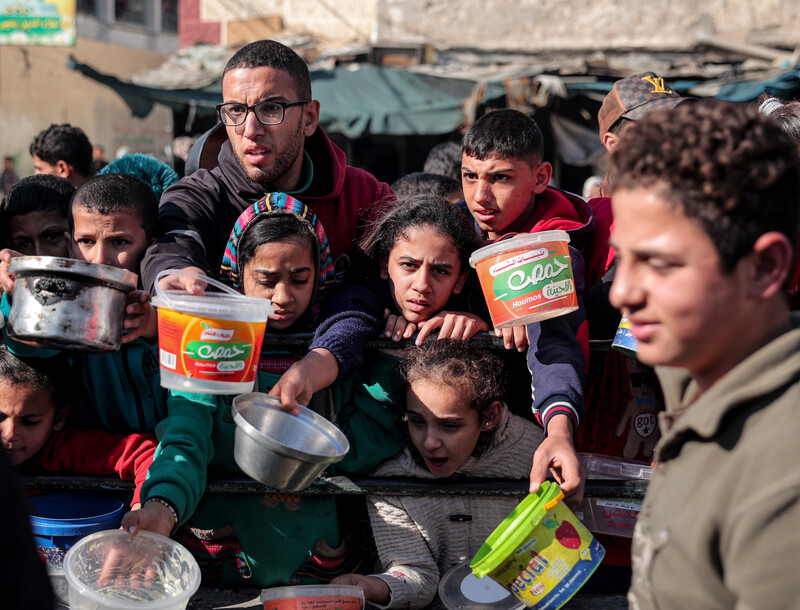The Electronic Intifada 22 December 2023

Hunger is increasing in Gaza.
APA imagesMy dad keeps asking me if there is any news about wages.
More precisely, he wants to know when the numerous people in Gaza who are on the Palestinian Authority’s payroll will get some money. I always have to shake my head and say “no.”
My dad is retired. He taught science in a school and should be receiving a pension of approximately $450 per month.
He has to take care of three family members, including me and my mom. He is in dire need of his pension to provide for our basics.
We have been forced to leave our home in al-Karama, northwest of Gaza City.
Now 10 members of my extended family are packed like sardines into a one-room flat with an asbestos roof. Rent for the flat comes to $400 a month.
We need a few mattresses and blankets for this flat. It is getting much colder and we are all shivering at night.
We also need more winter clothes.
Before we were uprooted, my dad had used most of his savings to buy a new flat.
Since buying that flat, we have relied on his pension. Before the current war, I have always helped him out financially when that was needed.
When I try to offer money to my dad these days, he rejects my offers. He wants me to keep my savings in the bank so that I can travel in the future – provided that I survive this war.
“Don’t worry about me, my daughter,” he says. “I have enough money in my bank account. Keep your savings for your travels and for any difficulties you might have.”
The small amount that my dad had left in his account after buying a flat is now being used for food. We are trying to find flour, rice and canned peas.
Collective punishment
Israel is responsible for transferring tax revenues to the Palestinian Authority. During the war, Israel has reduced the amount of revenue it hands over.
The reduction is based on the amount which the PA allocates to Gaza. Withholding this money is a form of collective punishment and illegal under international law.
My brother-in-law Abed works for the administration in Gaza. He has not received any wages for the past three months.
The administration has been struggling to pay its employees’ wages ever since Israel imposed a blockade on Gaza in 2007. During the war, payments have halted completely.
Abed is married to my sister Samah. They are in a better position than many others as Samah works as a teacher in a school run by the UN agency for Palestine refugees (UNRWA).
She gets paid about $1,000 a month.
Abed and Samah have four kids, including a 3-month-old infant.
They have managed to find 10 cans of baby formula. They cost a total of $500 – double the price before the war.
My sister has been breastfeeding. But it is extremely difficult for her to keep doing so.
With very little fruit and vegetables available, she cannot feed herself properly.
With the focus on feeding the baby, there isn’t enough money to feed the other three children in a decent way. They are all getting thinner.
My cousin’s husband works as a doctor in the Gaza health system. A few weeks ago, he received a payment of around $220.
That is all he has been paid in the past three months. The payment is insufficient to meet the needs of his 5-month-old baby.
My mom has savings of about $20,000. But she is unable to withdraw any money from the Palestine National Bank or its ATMs.
Israel has bombed a number of the bank’s branches.
Banks operating in southern Gaza have generally been operating online during this war.
In Rafah – Gaza’s southernmost city – there are only two official banks that people can access. I sometimes withdraw money from an ATM at the Bank of Palestine, even though I have an account in a different bank.
The same goes for my dad. He can withdraw money from the ATMs of banks that are recognized by the Palestinian Authority.
But my mom had her account in the Gaza-based Palestine National Bank. Formally established during 2012, it has not been approved by the Palestinian Authority in the West Bank.
Things would be so much worse if my dad and I were unable to access our accounts.
Khuloud Rabah Sulaiman is a journalist living in Gaza.





